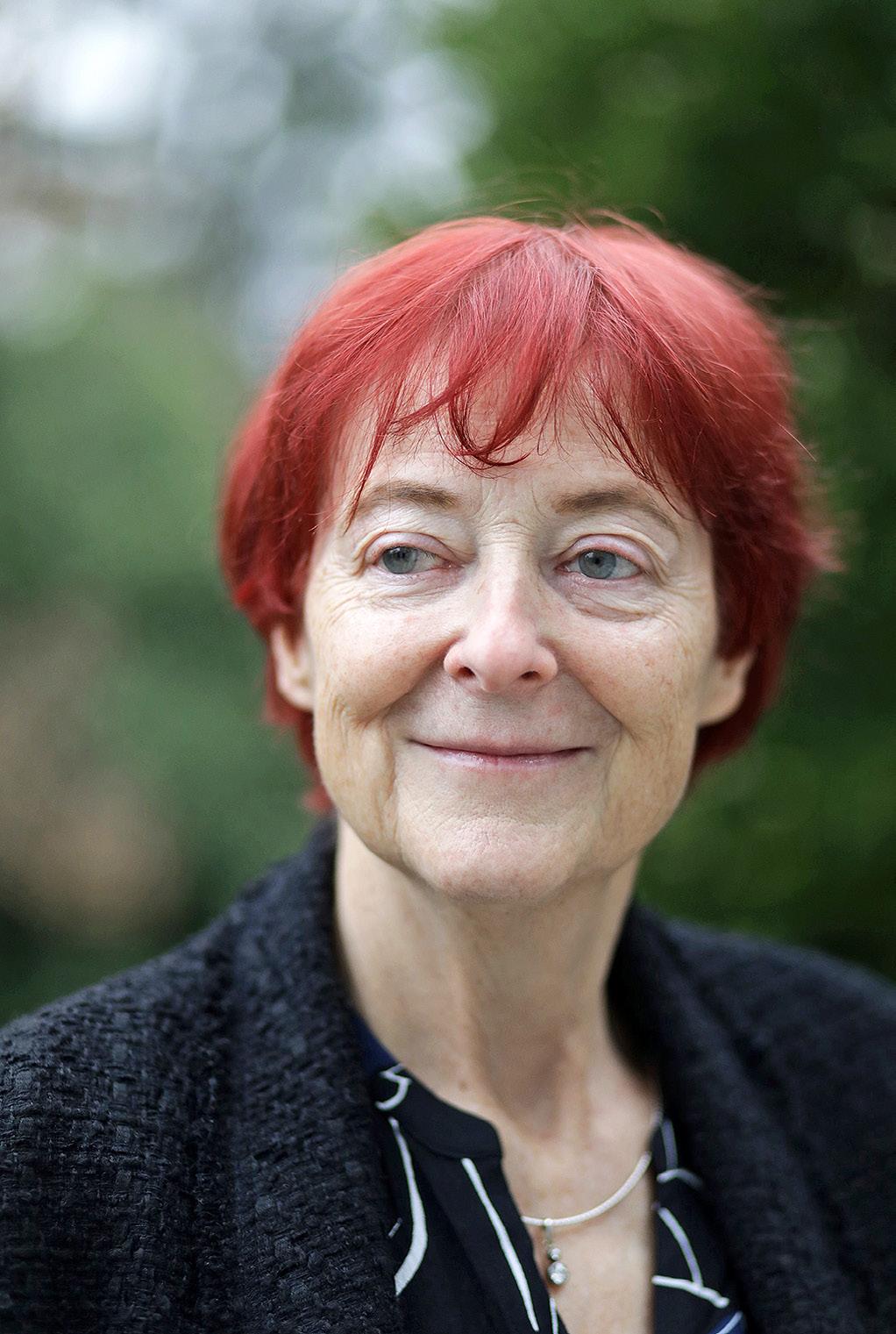
4 minute read
Ulrike Rein
MANAGING PARTNER, OPPENHEIM ÜGYVÉDI IRODA
BACKGROUND From 1984-1987, Ulrike Rein served as a law clerk at courts in Vienna, and assistant professor at the faculty of law of the University of Vienna (Institute for Constitutional and Administrative Law). From 1987 to 2007, she was a member and partner of Heller Löber Bahn & Partner, Vienna; the German-Austrian law firm Bruckhaus Westrick Heller Löber; and the global law firm Freshfields Bruckhaus Deringer. Since 1989, she has been working at the Budapest office of Oppenheim law firm, becoming the managing partner of Oppenheim in Budapest in 2007, and the legal representative of Oppenheim’s branch-office in Vienna. She is an attorney-at-law admitted in Austria (Rechtsanwältin) and admitted in Hungary as an EU lawyer. Rein’s hobby is making and collecting paintings, drawings, sculptures. The latest exhibition of her paintings (called “Talking Pictures”) can be seen at ullarein.com.
OF WHICH ACHIEVEMENTS ARE YOU MOST PROUD? What I am most proud of is not really “my achievement.” It is something that is based on my good luck and which is the achievement of a group of people. I was lucky to find inspiring people working with me. This enabled me to be open to listen and to see what is going on around me and to adapt to the requirements of the people I have been working with, and have been working for, over a long time. Oppenheim is a “story” that is the product
of such development. From its beginnings in 1989 until today, it has been and is a group of people who belong together under a common believe and understanding: To be a highly qualified working group that provides specialized services to clients in the legal field. Our story must be told and re-shaped and re-invented as we proceed in time in order to include as many people as possible. To date, I am proud that together we have mastered this task and I am also proud that we have a number of people, much younger than myself, who take the lead and are further building our culture on the foundation that had been put down decades ago.
WHAT DREW YOU TO LAW AS PROFESSION? There were two things I liked most during my time in high school: To argue, mainly with teachers, and to paint. I did not give up either of these. However, when I turned 18, I had to decide what to do, where to go. I finally decided to go to law school in Vienna. From there on, I was on track. I finished my studies within the shortest time possible and I then worked as an
72
Name of law firm Oppenheim Ügyvédi Iroda
Name of associate non-Hungarian law firm or cooperation network Freshfields Bruckhaus Deringer
Address 1053 Budapest, Károlyi utca 12.
Managing partner Ulrike Rein
In charge of position since 2007
Year of Hungarian law firm's establishment 1989
No. of attorneys with license to practise in Hungary on Sept. 15, 2020 41
No. of partners of Hungarian law firm on Sept. 15, 2020 16
assistant professor at the Institute for Constitutional and Administrative Law. I was never attracted by the thought of leading a calm life. Therefore, I decided to go for a job in a law firm. The senior partner of the firm I was working with was a well-known judge of the Austrian Constitutional Court. I guess he appreciated my education when he hired me. However, the law firm’s specialization was in the legal fields of dispute resolution, international arbitration and transactions. This is where I specialized and this is also what brought me to Hungary. In a nutshell, when you ask me what drew me to law as a profession, the answer is not that I wanted to search for justice with a lamp in the dark. Rather I was trying to understand a client’s standpoint and interest and to translate this into a language that would be understood by judges hearing a case, or by business partners in a transaction.
HOW DID YOU PICK YOUR LEGAL SPECIALTY AREA? I did not pick the legal specialty area; it picked me. What I mean is that when you go to law school you learn that it belongs to the essential skills of a lawyer to be able to read, write and speak. When you leave law school you have built up a certain knowledge and certain skills. Information you gain on a matter or a case is processed through the algorithms you have been taught during law school. With these assets and tools at hand you can do a lot of things. The things that were coming my way allowed me to develop certain specializations. Since I have had the chance to see and work on matters under dispute, and commercial transactions I know the ropes through that kind of work.
WHAT WOULD YOU CHANGE TO IMPROVE THE LEGAL ENVIRONMENT IN HUNGARY? I am not a politician, I do not make laws, and the last time I was dealing with the theoretical question of how to improve clarity of legal language used in laws and decrees was in the mid-1980s, when I worked at the university. As an attorney, I deal with applying laws. From that point of view, I think it is important that the language of all rules and regulations is as clear as possible. As my leading Professor said: “Legal language must not be beautiful, but crystal clear.” This is the corner stone for good, professional legal advice.












